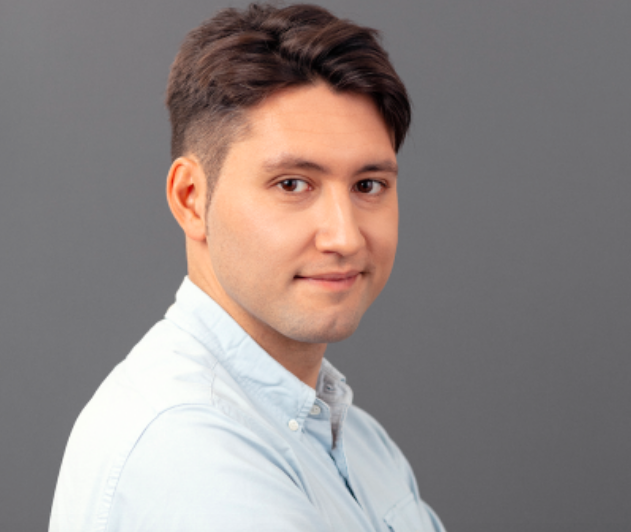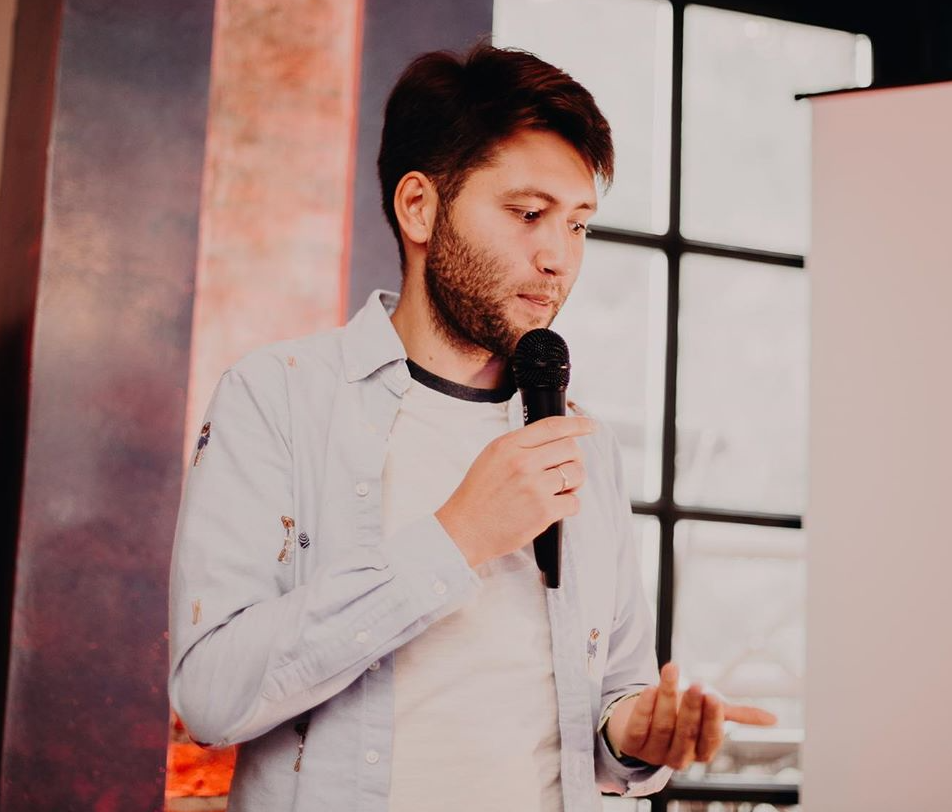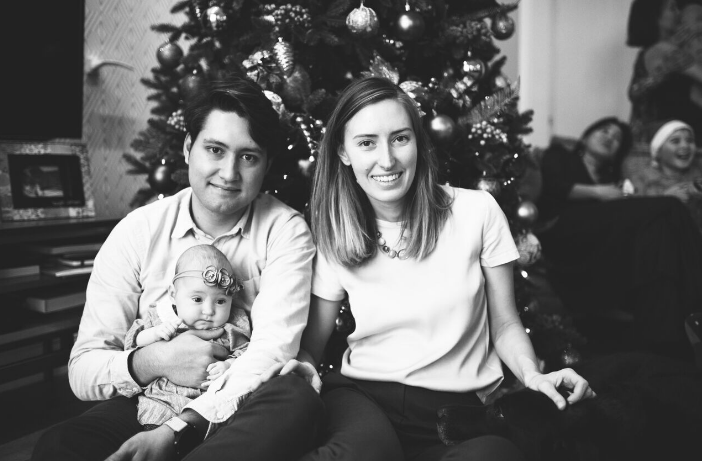‘Fundamental education is not a goal in itself, but a way of getting life skills’

Asan Kurmanguzhin graduated from the ICEF BSc programme in 2008, then enrolled on the MSc programme at the London School of Economics. After having worked in McKinsey he also received an MBA from Harvard. He is now a CEO at SberMarket, a part of Sberbank’s ecosystem. SberMarket is a successful online grocery delivery service, which was recently launched all around Russia. In the interview Asan spoke about career building in the technological sphere, e-commerce and the main difficulties of studying on the MBA.
What did you want to be after ICEF and why did you choose consulting?
During my studies at HSE (2004-2008) we only started thinking about our career choices consciously. Student clubs and first case championships appeared. For instance, my wife Polina Maltseva (an ICEF graduate herself) became a founder of McKinsey Business Diving Case Competition. We began to understand the connection between theory and real tasks that we would have to deal with in business.
Finally, I decided to go into consulting because of two factors. Firstly, I wanted to get into the environment of ambitious and smart people, with whom I could grow together. Secondly, I wanted to try myself in different industries and functions – at that time I did not have a full understanding of which field I wanted to work in. That is why my decision to work in consulting was logical.
How did the work in the company help in your self-identification?
Like ICEF, the company gave me an opportunity to develop a few skills which helped me grow further. During my studies in ICEF I learned to bring in focus, to be goal-oriented, to make an in-depth study of complicated concepts and difficult questions. To McKinsey I owe my structuring skills, ability to break down problems into components and communicate with the client.
I was lucky to work in a new industry in McKinsey for a year before getting an MBA. I got several offers. The first one was from Moscow government, the second – from a large bank, the third – from the startup Lamoda. I thought that operational experience when you can build something from scratch is very important. That is why I chose Lamoda.

In that very year I understood what I wanted to do and how I want to build my career, because my two main motivations got together. The first one is to be surrounded by strong and involved professionals who teach and energize you. The second one is to build something that will work and make someone’s life better.
At that time my aim was to build a delivery service from scratch. You can possibly see the Lamoda Express cars in Moscow, now they travel all over Russia. Working in this company made it clear for me that I want to stay in the technological industry and want to be surrounded by interesting and diverse people. That is why after graduation from Harvard Business School in 2015 I returned to this environment through the company Gett, then went to Instamarket which later became SberMarket.
You made an unusual choice at the beginning of your career. Were you prepared for managing, reaching decisions and being responsible for them?
In first several months in Lamoda I was scared, a lot of tasks were new for me. I had my first team which I needed to manage. I held my first negotiations, was responsible for my decisions and the achievement of key metrics in the company. It was like plunging into the ocean when you cannot swim.
After ICEF and McKinsey I had analytical skills, the ability to elaborate problems and accuracy which helped me a lot in my work in Lamoda. In my third month of work, I realized that it was about time to stop being afraid and feeling sorry for myself; it was time to act and make decisions.
When you enter the arena, you have already become a winner, regardless of whether you won or lost the battle, the entrance itself makes you stronger, more experienced and creates something positive
I have learned many things in Lamoda, starting from first managerial skills and motivating teams to the importance of constant prioritization and avoiding unnecessary tasks.

If we talk about MBA, what level does it deliver in a sense of management, thinking and understanding of business? Why did you need that degree at all?
Studies at Harvard (like at ICEF) became to me an opportunity to acquire new skills. I did not have any specific goals, I simply wanted to have a good time in unusual environment. But everything turned out slightly different from what I had expected.
Two MBA years turned out to become some of the most difficult years in my career
From the very first day on MBA you are surrounded by incredible opportunities, you need to constantly make conscious decisions and choose what is important to you. You can have in your schedule at the same time a meeting with the Head of the FBI, a workshop with the CEO of Dropbox, and a football match, where you are a captain, by the way. I guess this situation describes an MBA in a best way – a great number of meetings with outstanding people and activities that develops most important qualities in you. Besides, you learn from the most talented people in the world, experience different cultures and from this level you can carefully choose the next step of your career. МВА makes you experienced and opens up opportunities.
Another big advantage of studying is friends. My wife and I have a great number of friends all around the work, with whom we often meet when we travel.
What is exactly the role of fundamental education in the career success?
To me this is more about getting the key life and work skills, such as data structuring, which facilitates the elaboration of complicated topics, determination, an ability to reach decisions and analyze results. I learned the conceptual part at work or read books to solve concrete issues.
I have three degrees – BSc from ICEF, MSc from LSE, and MBA from Harvard. To be honest, I have forgotten a big part of the theory, but the years of studying made an invaluable contribution to my formation as a professional and a man. Everybody knows that a good fundamental education is not a goal in itself, but a way of getting life skills.
Tell us about the SberMarket project
Initially the company was called Instamart. I joined it after having worked two years in Gett and by that time I felt that I was able to lead not just the key function, but the company in general.
At that point, the company made about 250 orders per day in Moscow but was not so efficient from the point of view of the operating performance. My main task in the beginning was to make the business profitable so that we could start scaling. In 2018 we started making a profit from each delivered order; in 2019 we opened branches in Kazan and Ekaterinburg, grew threefold in that year and became a part of Sberbank’s ecosystem. As of today, we deliver a hundred times more orders than three years before, when I joined the company, and operate in all regions of Russia, which is about 115 cities.
How has the pandemic influenced the e-commerce, particularly within your project?
If we talk about the Russian market, there is a peculiarity – we have one of the lowest shares of selling groceries online in comparison to other countries. For example, in South Korea this share constitutes 18%, whereas in Russia it is less than 1%. The Russian market will reach the worldwide rates of 5-7% in the next few years and we would like to become leaders in this growth. The pandemic has boosted our development, but we still have a big path ahead to increase the share of online to match worldwide figures.
Speaking about technologies, almost all big financial structures are becoming IT companies. How should the students prepare to fit the changing market?
Recently we had a daughter and at that time I read a book 'How Will You Measure your Life' by renowned professor Clayton Christensen. One of his ideas was to think about your child in a sense that it is not a CV that should be motivation for development, but the skills themselves that in your opinion will help him or her in the future.

In a similar way I think about my development and I would recommend the same to students. It is important to prepare yourself for the world that rapidly changes. That is why it is better to choose a university where you will be surrounded by talented and ambitious guys, like HSE. It is also important to constantly develop skills of working with information, communication skills, logic, and use the university environment to exchange these skills and prove yourself.
One needs to invest a lot of time and energy in the development of important skills. This is why I would recommend working on that actively as long as the university gives such an opportunity. Theoretical and practical skills are not that important, as you will always have time for them if you make yourself a figure in the beginning of your career.